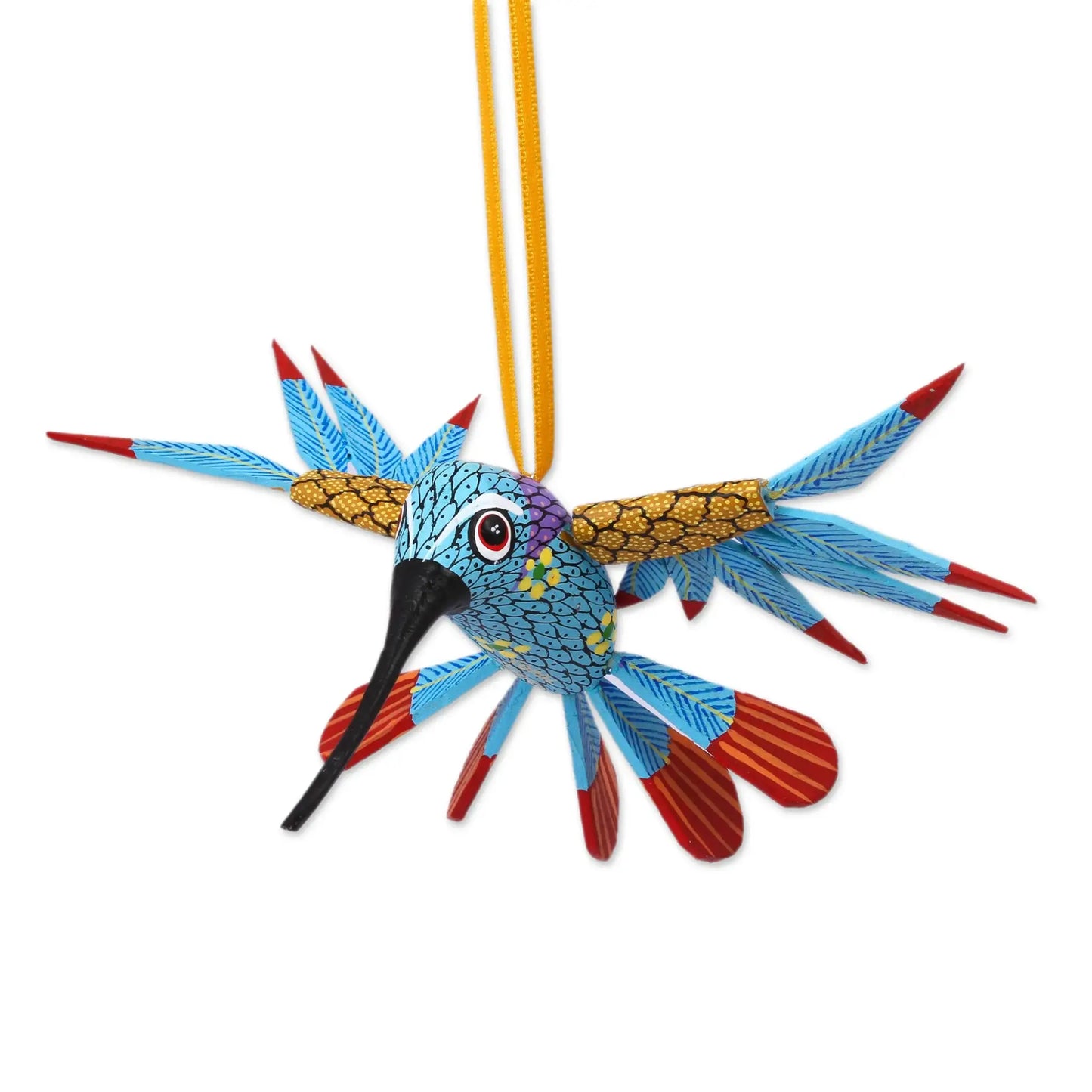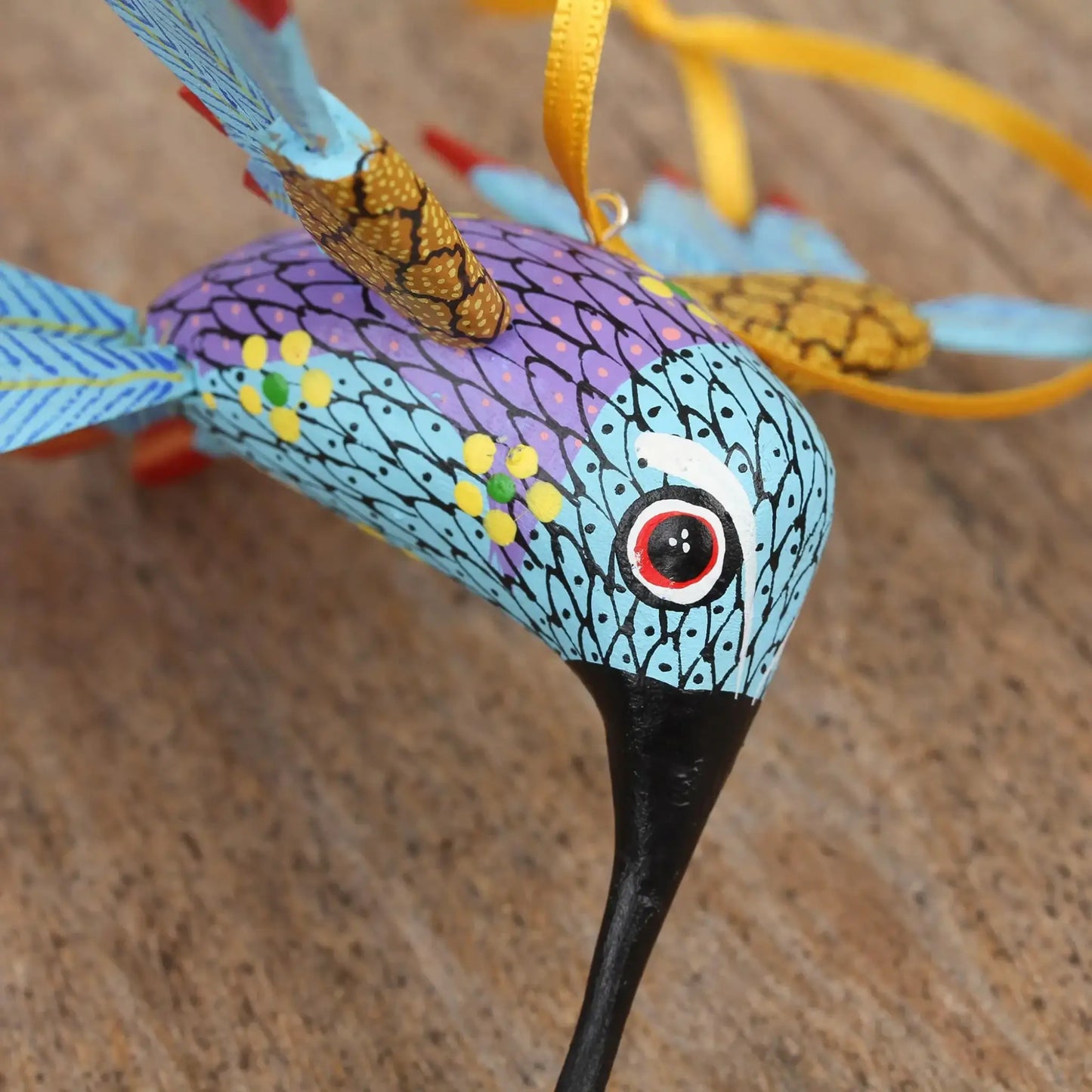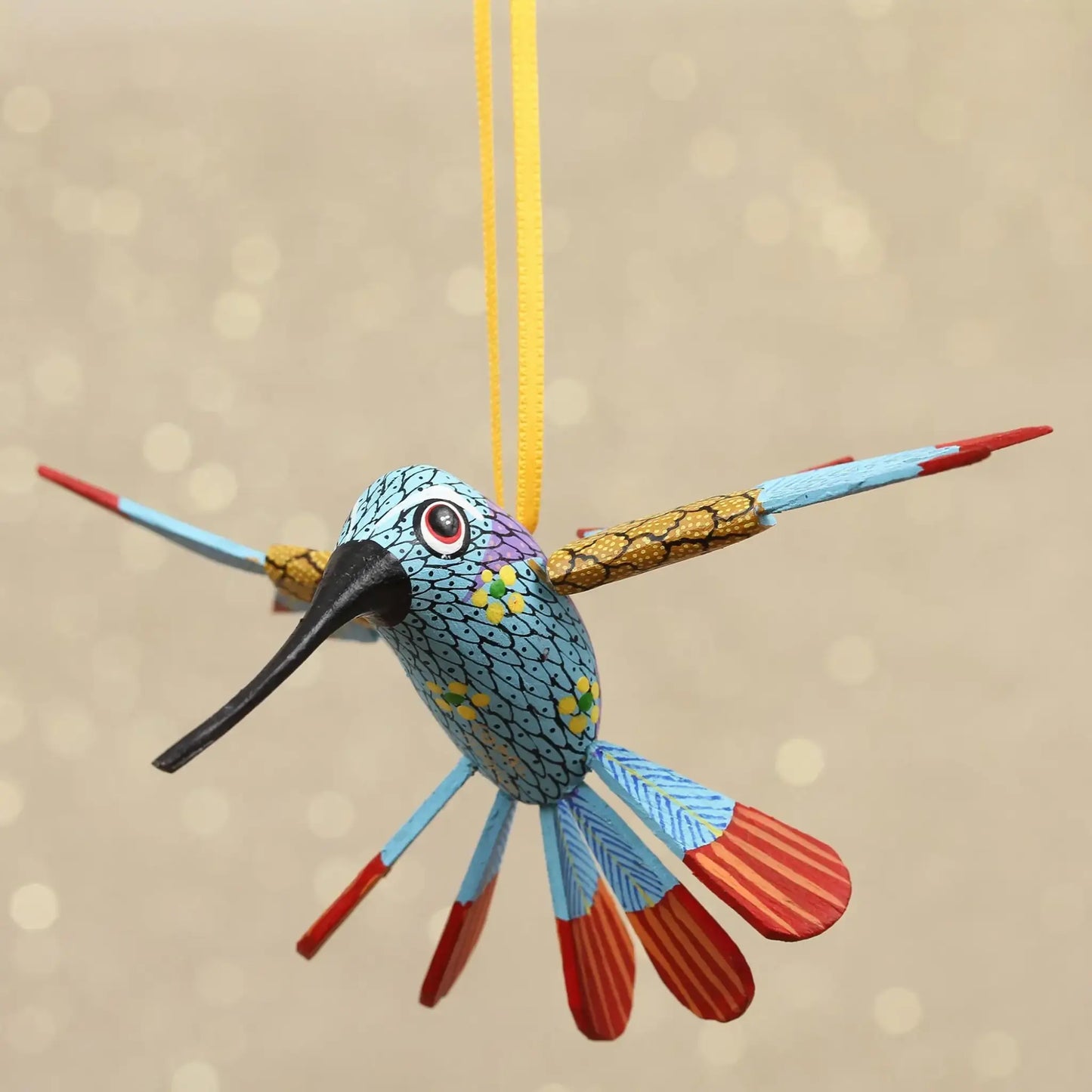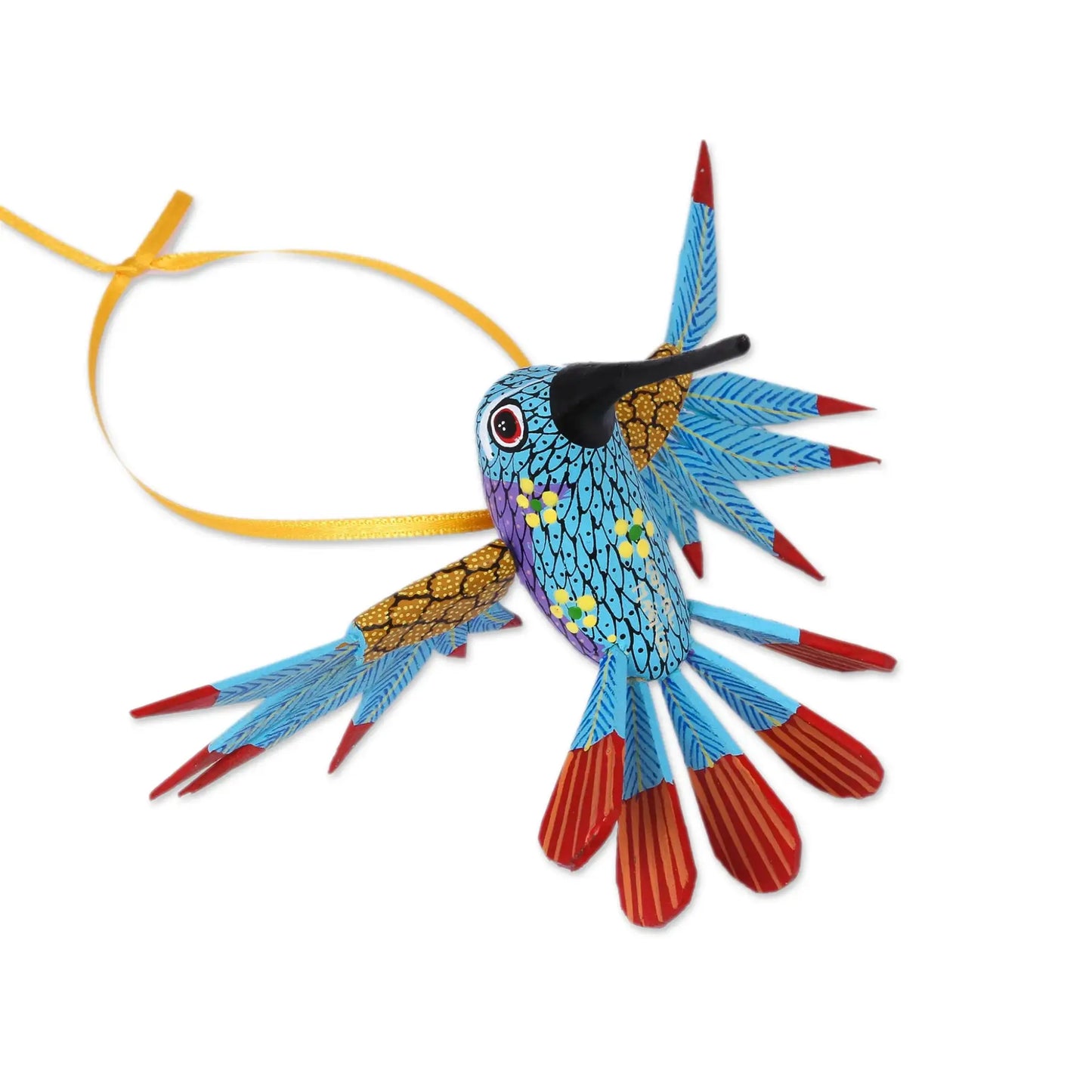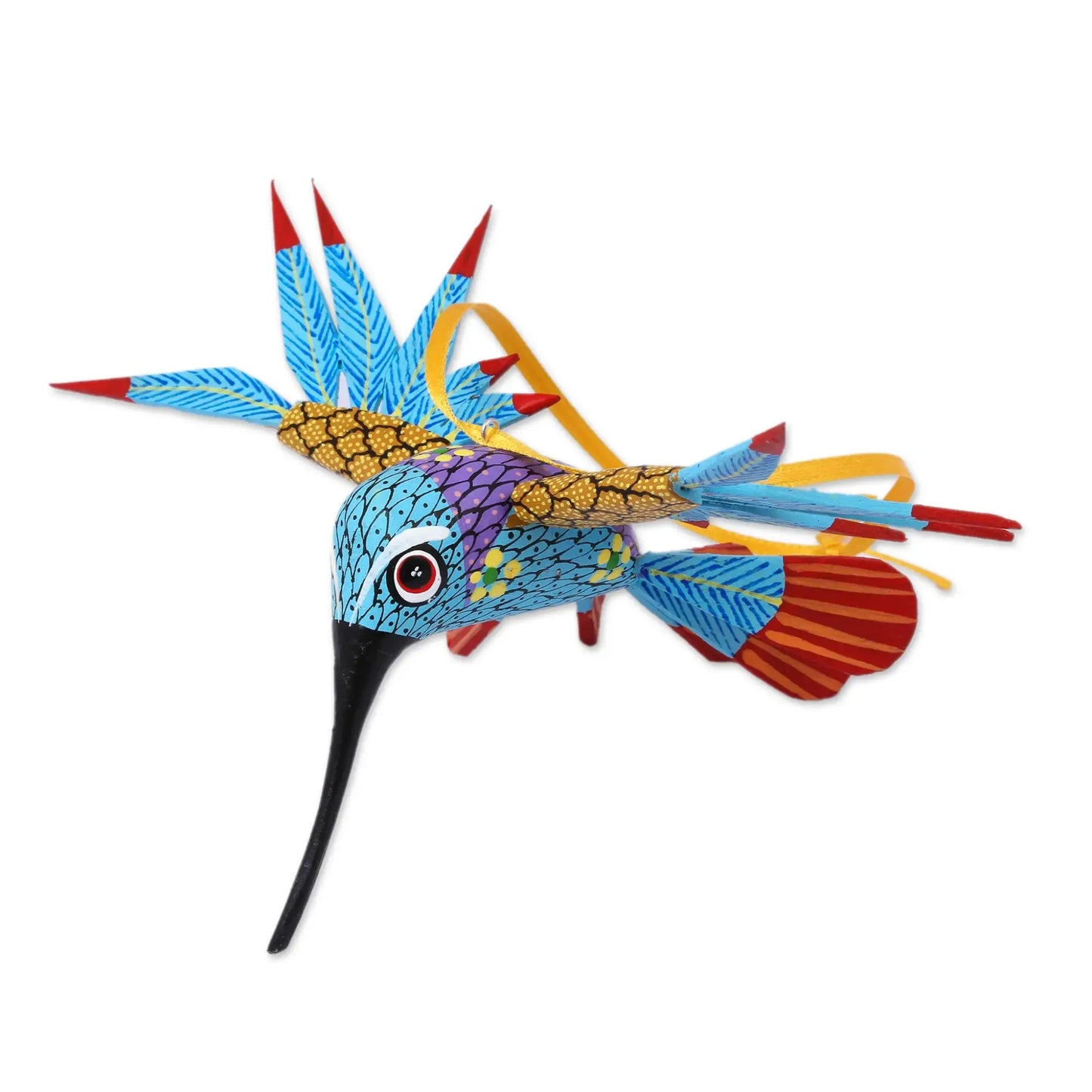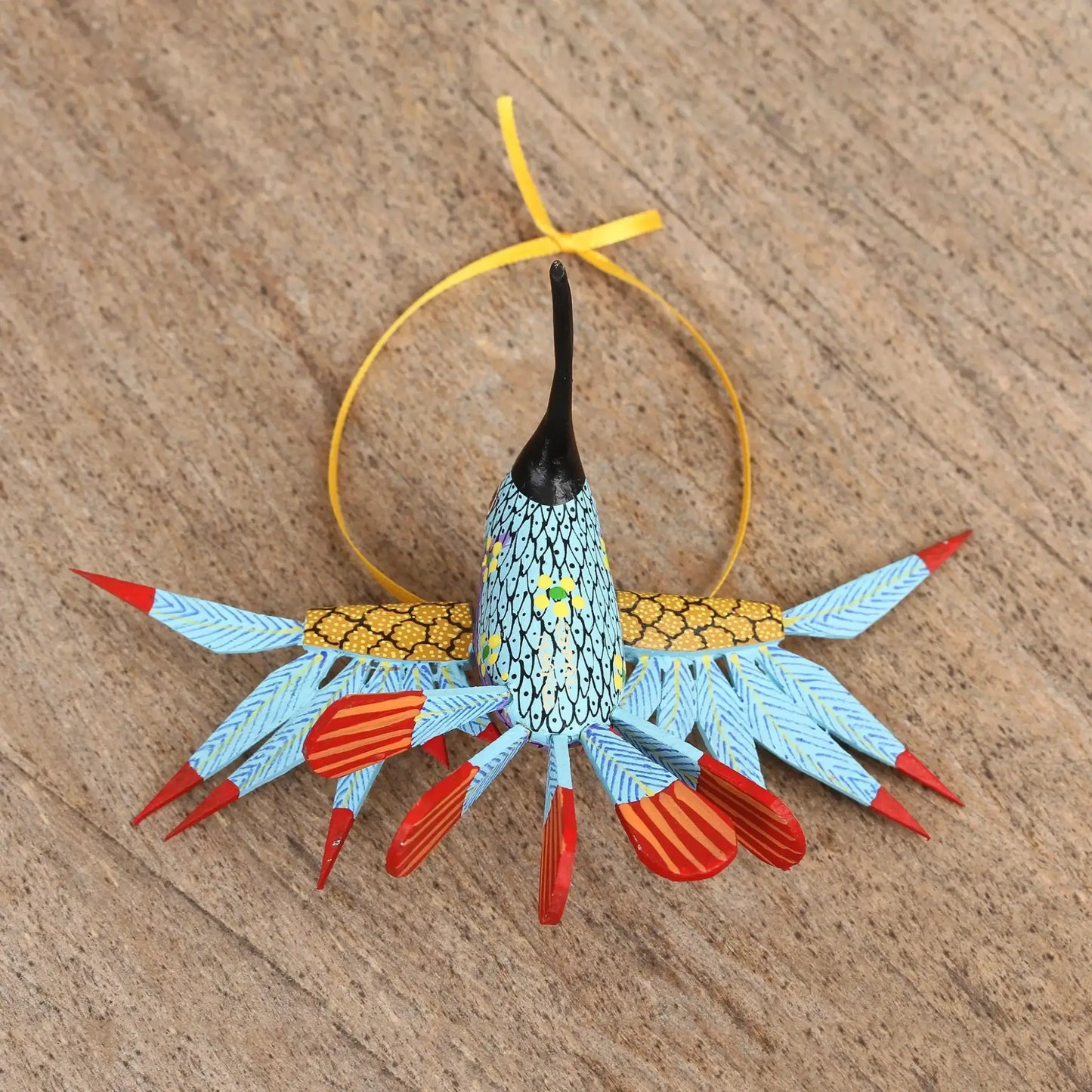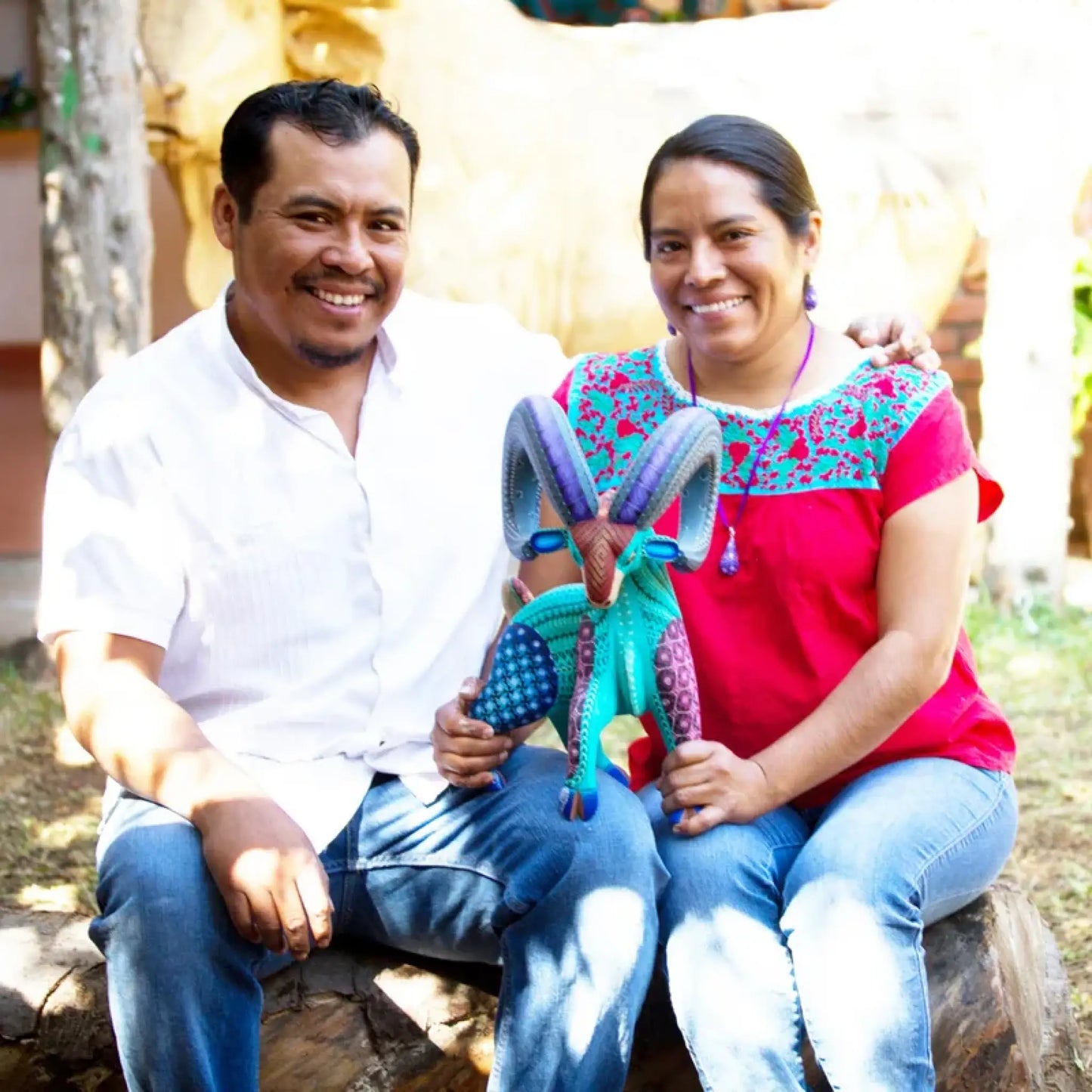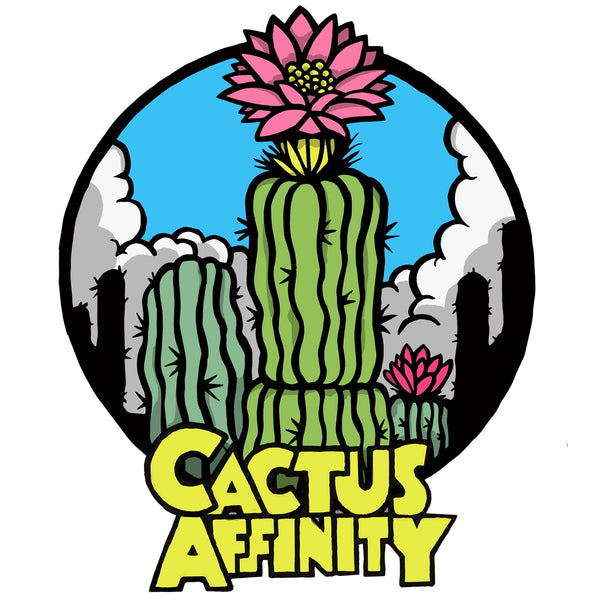Hummingbird Song- alebrije hummingbird
Hummingbird Song- alebrije hummingbird
"We believe that 'nothing ventured, nothing gained.' So we take on the challenge of creating innovative designs, and we experiment with different materials, some more complex than others."
Artisans Jesus and Roxana Hernandez of Mexico hand-paint this charming hummingbird alebrije ornament sky blue with red details on the tail and multicolor designs on the body. Hanging from a yellow ribbon, the bird is crafted from copal wood. Small parts are separated for shipping to protect from breakage.
The alebrije tradition started with Mexico City papier mache artisan Pedro Linares (1906-1992). When he was 30, he fell into a coma due to serious illness. While he was unconscious, he dreamed he was caught between the land of the living and the dead; the place looked like a forest and was populated with creatures with body parts belonging to different animals. The beings repeatedly uttered the word alebrije. Upon recovering, Linares recreated these figures in bright colors using papier mache techniques and called them alebrijes. His work became famous and was one of the main influences of artisans in the state of Oaxaca who began crafting alebrijes of their own using traditional wood carving methods.
- 0.71 oz
- 3.1" H x 6" W x 4.1" D
- Ribbon length: 4.3" L
- Copal wood
- Signed by the artist
- Hand-crafted item -- color, size and/or motif may vary slightly
- Warning: Choking Hazard. Small parts -- not for children under 3 years.
- Made in Mexico, ships from US
Jesus and Roxana Hernandez come from a Zapotec community in Oaxaca. "In our village, most of the men and women are wood-carvers and we specialize in Mexico's traditional alebrije sculptures. These are colorful and fanciful figures carved from natural branches that depict all kinds of strange and wonderful animals and imaginary creatures," Jesus explains.
"When we set up our workshop, the panorama didn't look good but we had so many dreams. We wanted to craft only large alebrijes with special motifs. These, of course, are worth more. But the problem wasn't making them. The problem was selling them. Not many shoppers purchased them and we became discouraged. So the first two years were rough for us.
"But then we were invited to participate in a public event that the governor attended. We gave a demonstration of carving and painting and he came over to see what we were doing. He recognized the value of our work and congratulated us. And he also bought the biggest alebrije we had — a bull. We were thrilled! It was a wonderful opportunity to introduce ourselves because we were mentioned in newspapers and magazines that covered the event.
"From then on, we approached the public institutions that promoted popular art contests. We began to participate and won prizes, which gained recognition for our workshop.
"We have four children, who bring us much joy. We spend all our free time with them, whether flying a kite or taking a walk in the countryside. We want them to learn our art and to preserve and spread it. But more, we want them to grow up happy and proud. We are teaching them our craft and also teaching our cousins, nieces and nephews.
"Mastering the art of alebrijes requires practice, discipline and much love. We use copal wood for our designs. We dry, treat and sand the wood before painting the motifs by hand. Roxana is expert at decorating the sculptures and her delicate hands convey beauty, from fine geometric patterns to flowers. Her designs are unique and elegantly detailed.
"We're an artisan family and we strive to improve our skills day by day. We believe that 'nothing ventured, nothing gained.' So we take on the challenge of creating innovative designs, and we experiment with different materials, some more complex than others.
"Thankfully, we are now able to offer work to our artisan neighbors. This is important in preserving our culture and tradition as well as generating a source of income. But more than that, we help stop the migration of artisan to cities to find work, and we contribute toward making our community more prosperous."
-Jesus and Roxana Hernandez
Couldn't load pickup availability
Share
